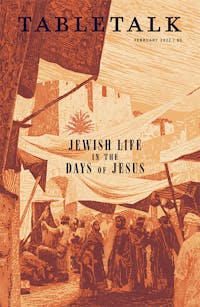
Request your free, three-month trial to Tabletalk magazine. You’ll receive the print issue monthly and gain immediate digital access to decades of archives. This trial is risk-free. No credit card required.
Try Tabletalk NowAlready receive Tabletalk magazine every month?
Verify your email address to gain unlimited access.
People fascinate me. Wherever I meet new people, whether in my own community or traveling, I want to learn whatever I can about them. From taxi drivers to restaurant servers, grocery store clerks to visitors to our church, I love to hear people tell me their stories and where they are from, their family ancestry, and their spiritual journeys. One of the reasons I absolutely love the community and culture of Central Florida is that there are people in our community and in our church from all over the world. I particularly love sitting down with members of our church and hearing the stories of God’s grace in their lives. And while pastoral ministry can be extremely difficult, one of the greatest joys of local church ministry is getting to know God’s people and learning all that God has done in their lives.
When we learn about people, we come to appreciate them more deeply. When we know more about where people have come from and how they came to arrive in the pew next to us, we naturally grow to love and care about them more. This applies not only to people, however, but to anything else in life that we care about, such as a book, a town, a historic site, a piece of art, or an institution. We want to learn more about whatever interests us, including its history and background, and, in most cases, the more we learn the more we appreciate it.
Because we love Scripture, we cannot help but ask questions about the historical background of what we read in the biblical text. And the more we study, the more we want to know about the social and cultural context of Scripture. We want to learn everything we can about biblical and ancient history, geography, and archaeology. This isn’t because we want to take away from the Bible’s uniqueness. We know that the Bible is the inspired Word of God and our only infallible authority for all of faith and life. We know that Scripture alone is inerrant. Even so, in many cases, we cannot fully understand all that is going on in a particular passage of Scripture unless we dig deeply into its background and historical context. Ultimately, we study not only that we might grow in our knowledge of Scripture but so that we might grow in our love for God’s inspired Word and in our love for God Himself as we gain a better grasp of God’s story and the glorious way He has orchestrated everything in world history according to His sovereign plan and for His glory.
